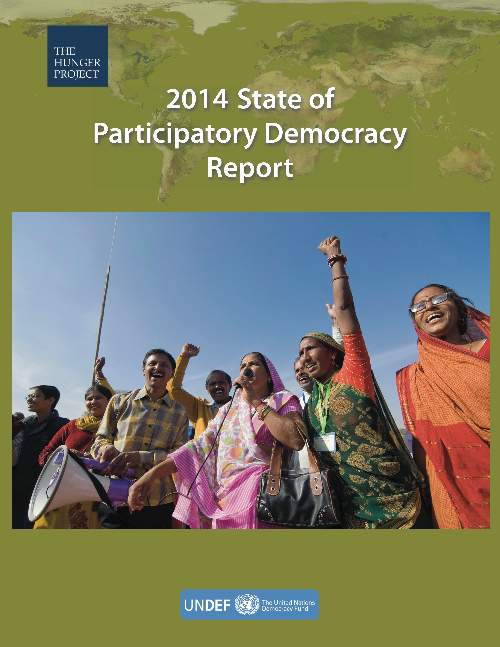
From 2012-2014, the United Nations Democracy Fund supported The Hunger Project to build a community of practice on Participatory Local Democracy. This community was mobilized to comprise dozens of local pro-democracy civil society groups in more than 70 countries.
Following a series of regional meetings in Africa, Asia and Latin America in 2012, a small secretariat team in Washington DC developed a multidimensional Participatory Local Democracy Index and solicited input from all participating countries to issue State of Participatory Local Democracy Reports during the 2013 and 2014 UN General Assembly.
UNDEF does not “renew” grants – it intends to make a catalytic investment, and with this project they succeeded. It led directly to the launch of the Movement for Community-led Development alongside the launch of the Sustainable Development Goals in 2015.
Posts on this site
-
Introducing the RDLG Bibliographic Database

We are pleased to announce that the Rural Decentralization and Local Government (RDLG) Database, with its 1600 bibliographic entries – is now part of this website. The Royal Tropical Institute in the Netherlands has, for many years, supported its development and operation within its KIT Information and Library Services. When the services closed in August 2013 due…
-
2014 Survey Results from Around the World
The data for the 2014 Participatory Local Democracy Index (PLDI) is being developed primarily in multi-stakeholder Focus Group Meetings around the world. Here are reports from those meetings.
-
Women’s Empowerment Day in India
This report was sent to us by the Institute of Social Sciences. 21st Women’s Political Empowerment Day Celebrations. Theme: Panchayats Women and Right to Food. 24‐25 April 2014 Venue: Abdul Nazir Saab Hall, Institute of Social Sciences, New Delhi The Institute of Social Sciences (ISS), organized the 21st Women’s Political Empowerment Day Celebrations on 24‐25…
-
Tarjeta de Puntuación
Tenemos la intención de trabajar con la comunidad local de práctica de la democracia local participativa para desarrollar y utilizar una tarjeta de puntuación de gobernanza compartida para evaluar y clasificar la democracia local en todo el mundo. Este cuadro de mando elevará el perfil de la democracia local a través de la publicación anual…
-
Family Planning – a Challenge to Decentralization
February 5, 2014 At today’s Family Planning 2020 stakeholder meeting, Prof. Fasli Jalal, head of the National Population and Family Planning Board, Indonesia, addressed his country’s strategy for addressing family planning in the context of a highly decentralized political system. Indonesia took the “big bang” approach to decentralization in 2000, devolving resources and decision-making authority…
